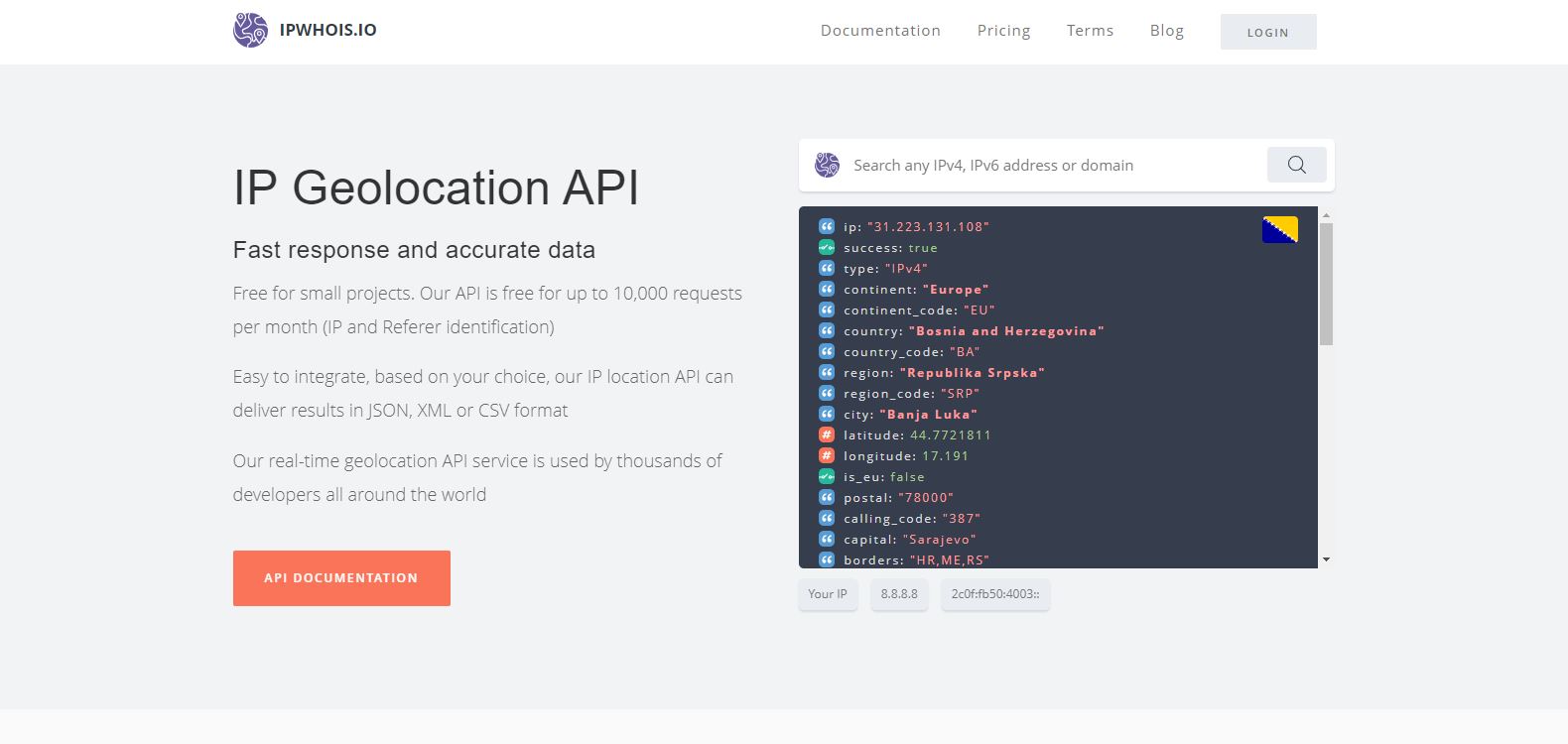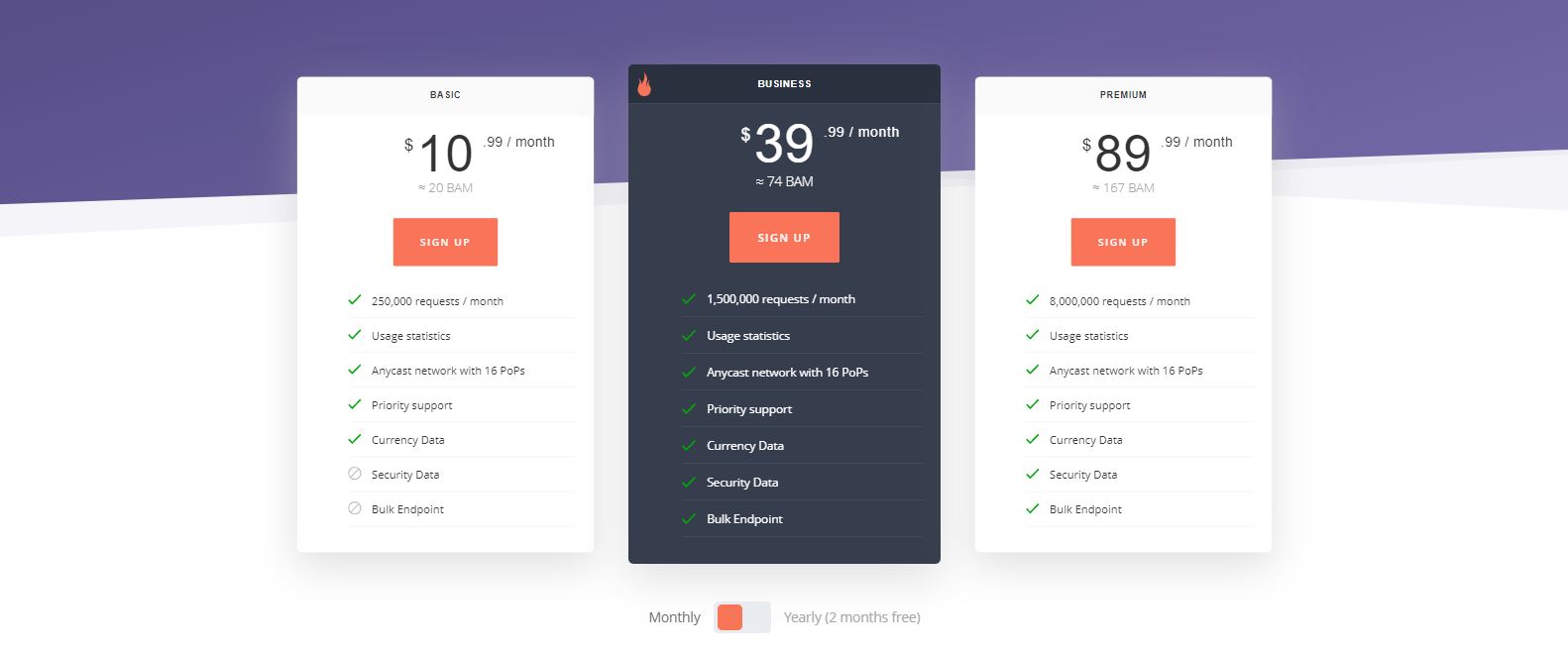Incorporating geolocation capabilities into the design of websites and mobile applications is becoming increasingly common since it results in a more satisfying user experience. IPWhoIs is an application programming interface (API) that helps you determine the location of users so that you may offer the appropriate content to them.
The application programming interface (API) makes it simple for you to add this feature and produce options for website users that are more pertinent and individualized. Take a look at the tool, and then read on to learn how you can put it to work for you.

IPWhoIs is an IP Location API that will assist you in customizing content in accordance with the user’s location. The environment of websites nowadays places a premium on location-based tools since an increasing number of users anticipate having more individualized experiences.
This can involve everything from determining the proper language, time, currency, advertising objectives, and more for each user that comes on your website to employing a geolocation API. Regarding e-commerce, a location API can even prevent fraud by matching the user’s location to the payment and delivery address provided during the checkout process.
Utilize IPWhoIs to filter traffic, customize the content, display entire country names, assist with auto-completing forms, and finish a wide variety of other activities according to the requirements of your website.
The IP data provided by this service is kept up to current in real-time because of a multi-channel integration structure that includes RIPE, APNIC, ARIN, and AFRINIC, amongst others. Furthermore, the average server response time across the majority of the world is under 90 milliseconds.
IPWhoIs can determine an IP address by issuing a GET request and then processing the response to that request. IPWhoIs provides both free and paid solutions, allowing it to be scaled to meet the precise requirements of any website regardless of its size or budget.
Contents of Post
Flexibility in Both Pricing and Tier Structure
IpWhois.io is a good choice for a number of reasons, the most important of which is that it is completely free to use. We know what you think because we’ve heard it before: if the primary motivation to utilize something is the price (especially if it’s free), then that product or service probably isn’t all that wonderful anyhow. In response to this, we would want to reassure you that this is merely the initial thing that will come to light.
This might appear to be a large number for those just starting out, but it isn’t very high at all. This program is free for up to ten thousand requests each month, as you would expect there to be a catch – there really isn’t! Still, it also can scale along with your website as you move up the tiers. This basically gives you the ideal answer if you’re simply experimenting with geolocation services.
There are three different pricing plans, and each one corresponds with a different amount of traffic received by your website or, if we want to get more exact, the number of requests made.

Why Do Hundreds of Developers Pick Our Application Programming Interface (API)?
Regardless of the platform, you’re using, IPWhoIs can assist you in improving the functionality and usability of your website design. In addition to that, the integration is simple.
Other important aspects include the following:
- There is no configuration of the IP library:
- Location customization
- Customization of time zones with offsets from UTC and adjustments for summertime
- The customization of currency in order to aid enhance conversion rates for sales
- Deliver the results in either the JSON or XML format or in Newline.
- There are no user barriers present, such as pop-up windows.
- Installation does not require any specialized skills.
- A large amount of material is available to guide you through the setup options.
- After everything has been set up, there is no need for any updates.
- Accurate conveyance of data with the use of a neural network that can learn on its own
- Response choices are available in a variety of languages, including English, Russian, German, Japanese, Chinese, French, Spanish, and Portuguese
- For the free plan, access tokens are not required at any time.
- Superior protection with 256-bit SSL encryption and a secure HTTPS protocol.
Simple To Put in Place
When you look at all of that code, it is easy to understand why you might believe that the process of setting up the application is a challenging endeavor that requires both written and video tutorials to complete. In point of fact, the situation is just the contrary. The free plan does not even require registration in order to use it.
You will be given results in one of three formats: JSON, XML, or CSV, depending on the programming language you are most comfortable with. This kind of protection assures that you will be able to proceed in the manner of your choosing, which is something that is universally acknowledged as being critically vital. An example of a request made in PHP and the response that it received in JSON can be found here.
Protection
When discussing the safety of geolocation, there are two aspects to consider. The information and responses you get from IP Whois are encrypted using 256-bit SSL, which means that you are protected in that regard; this is your “direct” security, which the provider enables.
Enhanced Techniques for Localization
As was discussed earlier, geolocation is an important component in the process of localizing your website. When you know where your visitor is coming from, you know not only their native language but also their currency, time zone, and other relevant information.
All of this information may then be put to use in the creation of a frontend that is tailored specifically to them. Even within the realm of localization, you have a number of options available to you. You can zero in on more general designations such as countries or continents or hone in on more specific designations such as regions or even cities, depending on how dependent your website is on said localizations.
The frontend is not the only part of the application that requires localization. On the backend, you will also have the ability to get responses in multiple languages. If you are used to working with software in your native language rather than English, you have the option of receiving responses in all of the most common languages, such as German, French, Spanish, etc.
Conclusion
Because geolocation is rapidly becoming an essential component of every thriving website, it stands to reason that all of these websites will make use of an API of some type. However, the majority of website owners still shy away from inserting pieces of code directly onto their sites because they do not feel confident doing so. Instead, they rely on a variety of tools that automate the coding process for them.
Because there are so many options available, visitors to today’s sites have increasingly high standards for the locations they visit daily, and newcomers and those who have been here for some time should work to overcome these concerns. To fulfill the requirements of your prospective consumers and keep them satisfied, you should make it a top priority to localize both your website and yourself in order to cover the primary locations of your target audience.
It provides the ideal opportunity to get acquainted with geolocation by providing simple capabilities. The highlighted free tier provides you with every opportunity to become accustomed to geolocation and figure out what it is all about.

